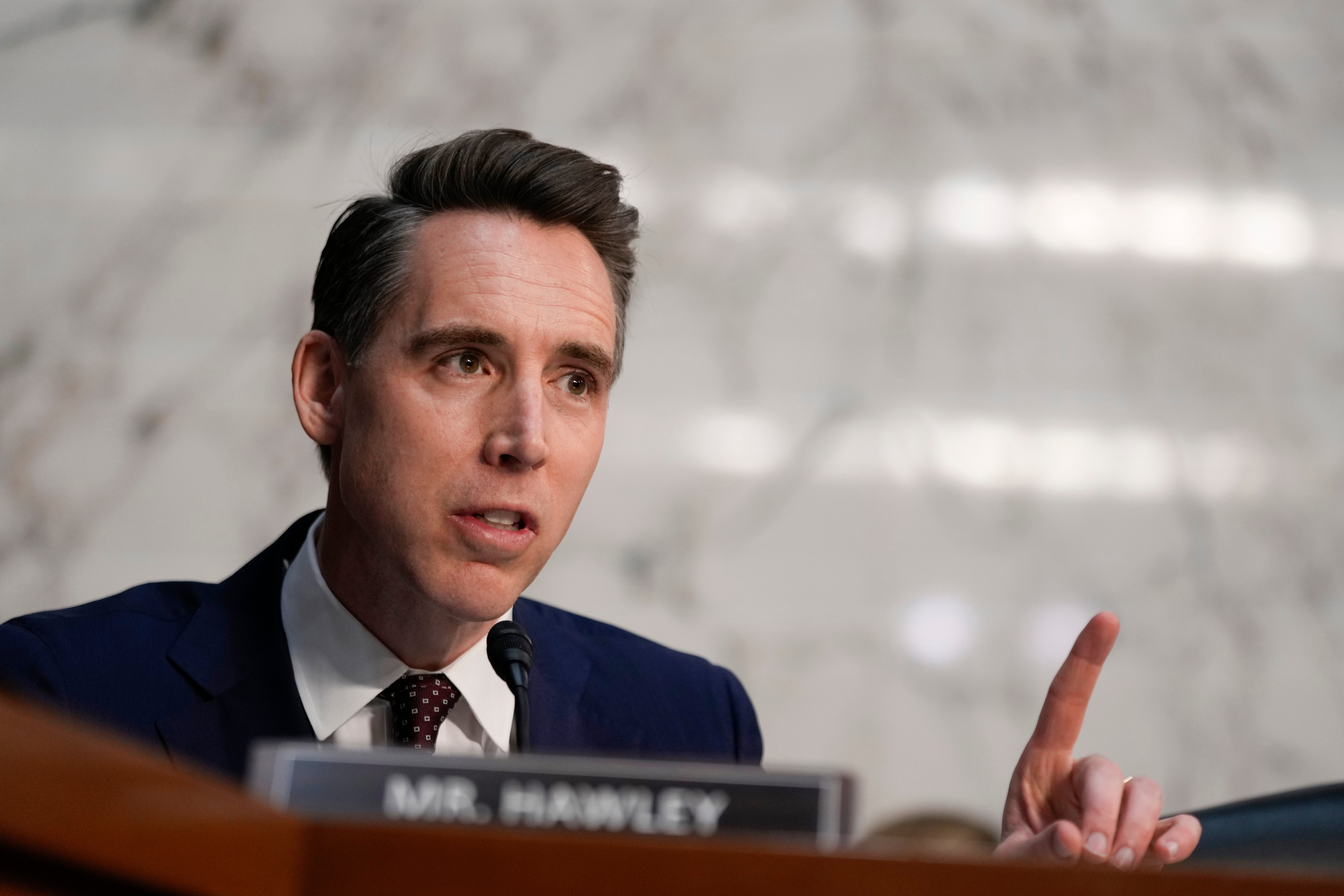This week, Senate Republicans released the tax and health care parts for their version of President Donald Trump’s desired “One Big, Beautiful Bill.”
But they face a huge problem: The bill is becoming incredibly unpopular. A poll from Ipsos and The Washington Post found that a plurality of Americans oppose the bill, with 42 percent opposing it, 34 percent saying they have no opinion and 23 percent saying they support it.
Specifically, they are grappling with the unpopularity of the bill’s changes to Medicaid. And it does not show signs of letting up. On Monday, the Senate Finance Committee released the text of its part of the bill.

During the debate around the bill in the House, Republicans made it so that able-bodied adults without dependent children would have to work, participate in education or community service for 80 hours a month. Conservative Republicans lobbied to make the work requirements begin in 2026 rather than 2029.
The Senate bill goes even further. For one, it lowers the age at which children are considered dependent to 14 years old. That means parents of children older than 14 would have to work to keep their Medicaid.
Sen. Jim Justice, a freshman from West Virginia, defended the work requirements.
“Biblically, we are supposed to work,” he told The Independent. “We have taken the dignity and the hope and the belief away from a lot of people where they are hopeless, they think they can’t. “
According to the non-partisan Kaiser Family Foundation, about 29 percent of West Virginians are on Medicaid and 62 percent of West Virginians on Medicaid work either part-time or full-time.
It seems Republicans know how politically caustic touching Medicaid might be. Sen. Bernie Moreno, a freshman from Ohio, tore into reporters.
“You guys really need to report it accurately, though, which is we’re actually increasing the amount of money we’re spending on Medicaid,” Moreno told The Independent this week. “We’re spending more on Medicaid. We’re also eliminating the abuse by able-bodied adults, and we’re reinstating the fact that Medicaid is for people who need it.”
Trump has said he wants the bill done by the July 4th holiday. Earlier this week, Centers for Medicare and Medicaid Services administrator Mehmet Oz, the television host, met with Senate Republicans to discuss the bill.
The legislation also seeks to cap the level of provider taxes. To pay for Medicaid, many states levy taxes on facilities like hospitals or nursing homes. This often allows for states to collect the money to receive matching funds from the federal government.

Under the proposed bill, states that did not expand Medicaid under the 2010 Affordable Care Act signed by then-President Barack Obama, would be prohibited from raising provider taxes. States that did expand Medicaid would see their provider taxes reduced by 0.5 percent annually until they are capped at 3.5 percent in 2031.
“The provider tax is a way around the match,” Sen. John Hoeven of North Dakota told The Independent. “The whole point is for us to get after waste, fraud and abuse, and the provider tax is a way for states to avoid putting up their share of the match.”
Sen. Ron Johnson, a fiscal hawk who has wanted the bill to slash even more spending, went a step further.
“It’s legalized fraud, it’s not health care,” the Wisconsin Republican told The Independent. “Why are we paying for taxes reimbursing state taxes and fees? It’s absurd.”
But the proposal in the bill raised alarm bells for hospitals, since Medicaid accounts for 19 percent of all hospital revenue, according to the Kaiser Family Foundation. Many rural hospitals also rely on Medicaid given the large number of rural residents who are on Medicaid.
Chip Kahn, the CEO and president of the Federation of American Hospitals, said in a statement earlier this week that the Senate text made the bill worse.
“Rural communities across the country will be the hardest hit, with struggling hospitals compelled to face difficult decisions about what services to cut,” he said. “It’s imperative Senators take a detour on this text and reject its deepening of the House cuts already on the table.”
But it’s not just the hospital lobby that hates the text so far. Sen. Josh Hawley of Missouri, the biggest defender of Medicaid among Senate Republicans, criticized the provisions.
“I’m totally surprised by what they proposed to do on the provider tax I don’t know why we would defund rural hospitals to pay for Chinese solar panels,” he told The Independent, referring to the fact that Senate version draws down the renewable energy credits from Joe Biden’s Inflation Reduction Act at a slower pace than the House’s version of the bill does.
Hawley later said that he spoke with Trump about the subject.
“I think that you know he’s he does not want to have Medicaid benefits cut,” Hawley said, adding that Trump doesn’t want to see rural hospitals hurt either.
But Hawley is not the only Republican worried about the effect on hospitals. Sen. Susan Collins, who faces a tough re-election in Maine in a state Trump lost.
“I’m looking at whether there would be receptivity to a provider relief fund that would be aimed at rural hospitals, nursing homes and community health centers,” Collins told reporters on Wednesday. “I’ve not endorsed in any way, a provider tax change.”


